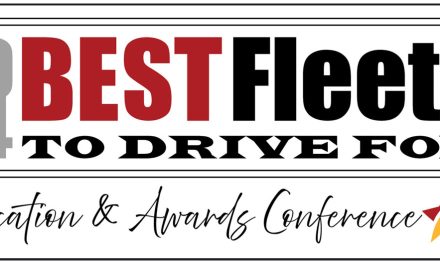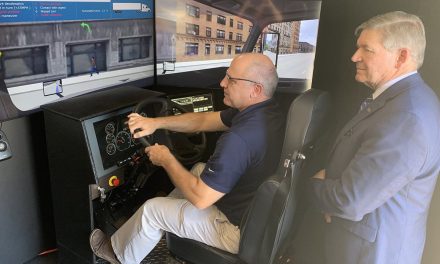Kirby Smith, GM Sales, Intellifuel Systems, Inc.
My attitude about technology has changed dramatically in the last few years, and while it has stirred occasional anxiety, it is dominantly for the better. I recall a time in the mid-eighties as a fledgling headhunter fighting writer’s cramp keeping my Rolodex and Plan-A-Date current. In 1987, my executive search firm purchased an IBM PC-XT for around $5,000, and the inexorable quest toward the paperless work environment ensued.
Fast forward to today, and my trusty paper-based trappings have been replaced by one device I carry in my pocket and charge every night. It is orders of magnitude more powerful than that first IBM PC of yesteryear. I have conceded memorizing countless phone numbers for a contact list that even responds when I talk to it! Now if I could just remember my own home phone number. But I digress.
Your drivers are no different. In their personal life, their spouse and kids know how to reach them at all hours of the day. The tough reality for many is that they re-live (a not so desirable) history as soon as they arrive in the yard to clock in and start their pre-inspection on the truck. Paper inspections and logs, a list of work for the day (or maybe first load-out), a stack of preprinted delivery tickets, and the ever-present wire top flip pad stuffed in their left front pocket are the traditional tools of their daily commerce.
For some, in addition to the manual tools, an additional device is included in the mix. It is the now ubiquitous OBC, or On-Board Computer. These are typically fixed-mount, hardwired legacy devices originally designed for OTR and LTL applications. They often interact through a series of abbreviated prompts and button-based or numeric responses. Many of these devices have been “shoe-horned” into the tanker truck space—and it shows. The driver interaction makes talking to overseas customer service phone banks a walk in the park.
Retaining drivers can be a challenge in many markets. Retaining great drivers is a challenge in every market! Drivers desire certainty in their shifts, and excellent replenishment planning systems with easy-to-master OBC’s facilitate that certainty. Your choice: Should you make the work experience superior for your drivers, or should you allow your competitors to provide it to them when they change fleets? Proper use of technology is one more way to remind your drivers that you want their day to be efficient, simple, and error-free. Here are a few “Rules of the Technology Road” to consider when evaluating OBC solutions:
1. Make it simple – You don’t want to replace a driver with “Bill Gates with a CDL.” One fleet owner said this profoundly: “I want to train my team in 30 minutes.”
2. Make it comprehensive – You don’t want two, or three, or four devices with which the driver must interact. Not every function may work in stand-alone mode, but every feature must be accessible through a single device.
3. Make it fun – A fleet owner shared an interesting anecdote with me. He stated that, “My drivers show off their tablets when they are talking to other drivers at the rack. I like that! It improves my brand value to make their lives easier.”
4. Make it safe – You don’t want a driver to have the ability to read or respond to a message from dispatch while the truck is in motion. You can’t allow the technology you deploy to cause the driver to take their eyes off the road while underway. Period.
5. Make it profitable – Consider every minute in the order management process, and how to reduce or eliminate it. Never ask a driver to provide a single piece of data that can be collected from another source or a prior step. Consider timeliness: what is the elapsed time from product entering the tank to an invoice delivered to the customer? Think in minutes, not hours or days.
6. Make it a commodity – If a driver breaks their tablet, you should be able to run to a local discount or electronics store and pick up a replacement. As new versions of the tablet appear on the market, you should be able to buy version 2 and use it in new trucks while version 1 continues to meet needs in prior trucks. Obsolescence is no longer an acceptable alternative.
Like it or not, the future is mobile devices for today’s applications and others we have not even conceived of yet. For OBC’s, the future is in outfitting your fleet with low-cost, easily replaced commoditized appliances that drivers not only master quickly, but actually embrace. We are experiencing a significant paradigm shift that has been underway in our industry for a good three years now. This shift is taking us away from the fixed mount, hard wired legacy devices to portable tablets that can be carried outside the vehicle for pre- and post-VIR’s and sticks, as well as signatures for paperless delivery tickets.
Apple and others have done a terrific job with their readily available photo and scanning capabilities that have major implications for BOL capture and commercial fueling operations. For instance, BOL photos with PDF formatted delivery tickets can be e-mailed to the customer within minutes of a delivery. Furthermore, there are many scanning apps that can be incorporated into a fuel delivery application that are quite good at picking up a bar or QR code on a tank within a couple of seconds (be it a skid or even a vehicle tank when wet-hosing). With the advent of Bluetooth printers, there is no longer a need for a driver to write down load-unders and product quantities to be lifted before he puts his OBC to sleep at the terminal.
These advancements have profound implications for your fleet, and should be considered when evaluating OBC’s. The bottom line for carriers is that it is not partially about the driver, or even mostly about the driver. It’s all about the driver! Make it easy on them and you will reap the rewards.
 Kirby Smith is GM Sales for Intellifuel Systems, Inc., which provides automated operational process solutions to the petroleum and biofuels industries. With deep roots in the petroleum industry, Intellifuel has the experience and know how to create, deliver, and implement tools that enhance our customers’ profitability. Contact: www.intellifuel.com or 321.264.8707
Kirby Smith is GM Sales for Intellifuel Systems, Inc., which provides automated operational process solutions to the petroleum and biofuels industries. With deep roots in the petroleum industry, Intellifuel has the experience and know how to create, deliver, and implement tools that enhance our customers’ profitability. Contact: www.intellifuel.com or 321.264.8707









